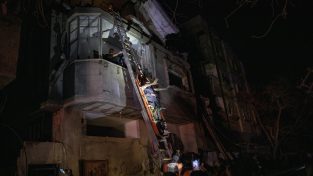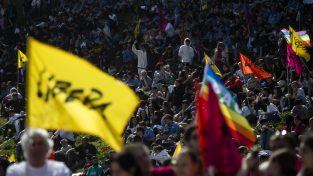Unicef: 365 giorni di guerra in Ucraina
A quasi un anno dall’escalation della guerra in Ucraina il 24 febbraio 2022, una generazione di bambini ha vissuto 12 mesi di violenza, paura, perdita e tragedia. Non c'è un solo aspetto della loro vita su cui il conflitto non abbia avuto un impatto, con bambini uccisi, feriti, costretti ad abbandonare le loro case, a perdere un'istruzione fondamentale e a vedersi negati i benefici di un ambiente sicuro e protetto
«I bambini in Ucraina hanno vissuto un anno di orrore», ha dichiarato Catherine Russell, direttore generale dell’UNICEF. «Milioni di bambini vanno a dormire al freddo, spaventati, e si svegliano sperando che questo conflitto brutale sia finito. Sono stati uccisi e feriti bambini e molti hanno perso genitori, fratelli, sorelle, case, scuole, parco giochi. Nessun bambino dovrebbe mai subire questo genere di sofferenze».
La guerra ha avuto un impatto devastante prima di tutto sulla salute mentale dei bambini: si stima che 1,5 milioni di bambini sono a rischio di molti problemi di salute mentale come depressione, ansia e disordini da stress post-traumatico, con effetti potenzialmente a lungo termine.
La crisi economica poi ha comportato un pesante impoverimento di moltissime famiglie tanto che la percentuale di bambini che vivono in povertà è quasi raddoppiata, arrivando a toccare l’82%, particolarmente per quanto riguarda i quasi 6 milioni di sfollati in Ucraina. La guerra ha interrotto l’istruzione per oltre 5 milioni di bambini, e questo accade dopo due anni di apprendimento perso a causa della pandemia da Covid-19.
Anche l’accesso ai servizi di base è crollato: sono oltre 1.000 le strutture sanitarie danneggiate o distrutte da bombardamenti o attacchi aerei che hanno ucciso o ferito gravemente il personale medico e molti pazienti, tra cui bambini. Migliaia di questi in fuga dal conflitto non hanno ricevuto vaccini essenziali contro malattie pericolose come polio, morbillo e difterite.
Catherine Russel sottolinea quindi che finché la guerra non finirà è prioritario occuparsi della salute mentale e psicosociale dei bambini attraverso azioni adatte all’età per fornire cure nutrienti e costruire la resilienza e dare loro l’opportunità di esprimere le proprie preoccupazioni,
Per questo l’Unicef continua a chiedere un accesso umanitario sicuro, rapido e senza ostacoli, la fine degli attacchi ai bambini e alle infrastrutture su cui fanno affidamento, tra cui scuole, ospedali e sistemi idrici e igienici; di evitare l’utilizzo delle scuole in questo conflitto e di fermare l’uso di armi esplosive nelle aree popolate, direttamente responsabili dell’uccisione e della mutilazione di centinaia di bambini. Soprattutto, l’Unicef continua a chiedere la fine delle ostilità.
Dal 24 febbraio 2022, l’Unicef, grazie al supporto della comunità internazionale, ha fornito aiuti per l’apprendimento a 770.000 bambini, ha coinvolto 1,4 milioni di bambini nell’istruzione, fornito supporto per la salute mentale e psicosociale a 2,9 milioni di bambini e persone che se ne prendono cura, garantito servizi di risposta alla violenza di genere a 352.000 donne e bambini, dato accesso all’acqua sicura a 4,6 milioni di persone, fornito servizi per l’assistenza sanitaria a 4,9 milioni di persone e garantito assistenza in denaro a 1,4 milioni di persone in Ucraina e 47.494 famiglie nei paesi vicini.
A dicembre 2022, l’UNICEF ha lanciato l’Appello annuale per l’Intervento Umanitario: necessita di 1,1 miliardi di dollari per continuare a fornire supporto e azione su tutte queste linee per risposte ai bisogni immediati e a quelli più a lungo termine di 9,4 milioni di persone, tra le quali 4 milioni di bambini, dentro e fuori l’Ucraina. Aiuti di questo tipo garantiranno una preparazione tempestiva per ulteriori sfollamenti interni e movimenti di rifugiati. (Foto Unicef)

















